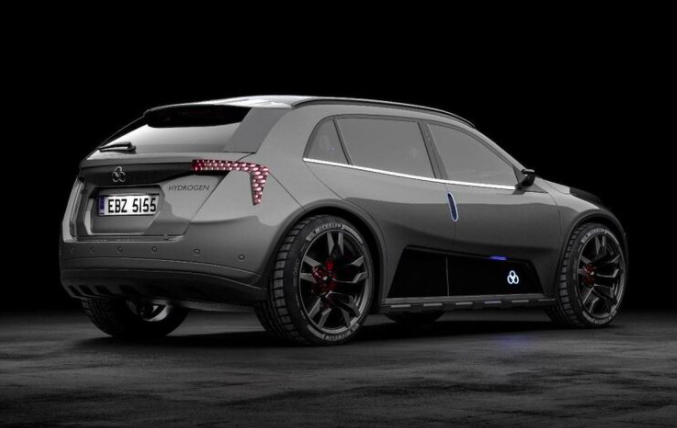Warwickshire’s MIRA Technology Park is now home to the development programme of a 1100bhp hydrogen-powered hypercar from nascent engineering firm Viritech, which aims to become “the world’s leading developer of hydrogen powertrain solutions”.
Called the Apricale, the hypercar will be sold in limited numbers for around £1.5 million before tax, but it is intended primarily as a demonstration tool for Viritech’s hydrogen fuel cell technology, which it plans to offer to third-party companies for use in FCEV passenger cars, heavy goods vehicles, aircraft and boats.
It is intended to be the “world’s first production hydrogen hypercar” and seeks to demonstrate the advantages of FCEV technology over that of conventional electric powertrains.
Speaking exclusively to Autocar, Viritech co-founder Matt Faulks, an ex-Formula 1 engineer, outlined the reasons for Viritech’s focus on hydrogen: “You run into two issues when you go down the battery route. One is the ‘mass compounding element’ - the more energy storage you need, the heavier the car gets.
“The second is the continued use of large amounts of raw materials in building very large battery packs, which are potentially recyclable, but even today we’re struggling to get lithium back out in a way it can be used again.”
Faulks added that, “as an ex-motorsport guy”, he did not want to build a car “that weighed two tonnes”. The Apricale, to that end, will “push the boundaries of technology” and has been developed with an emphasis on keeping weight down and making it “fun to drive”.
The issues with an FCEV powertrain, as perceived by Faulks, are primarily centred around the storage of the hydrogen itself, and the weight of the hardware. To overcome these obstacles, the Apricale uses ‘graphene-reinforced hydrogen pressure vessels’, which essentially means the hydrogen storage tanks form a structural element of the chassis. This reduces weight and cost, while simplifying the structure.
Viritech has filed a patent for this technology, which Faulks identifies as a “key component” of the Apricale and future Viritech products. While the hypercar will be the first automotive application of this technology, the firm is targeting the commercial vehicle segment primarily, given the long-distance viability of an FCEV powertrain. (Viritech is targeting a range of around 500 miles.)
However, to demonstrate the flexibility of its concept, the firm has revealed the Tellaro SUV as a ‘reference design’ that shows how relatively lightweight FCEV technology could suit larger (and inherently heavier) passenger cars. “We will be sharing this concept with the many OEMs engaged in transitioning to electric vehicles, to demonstrate how a hydrogen SUV could be taken from concept to market,” Viritech says.
